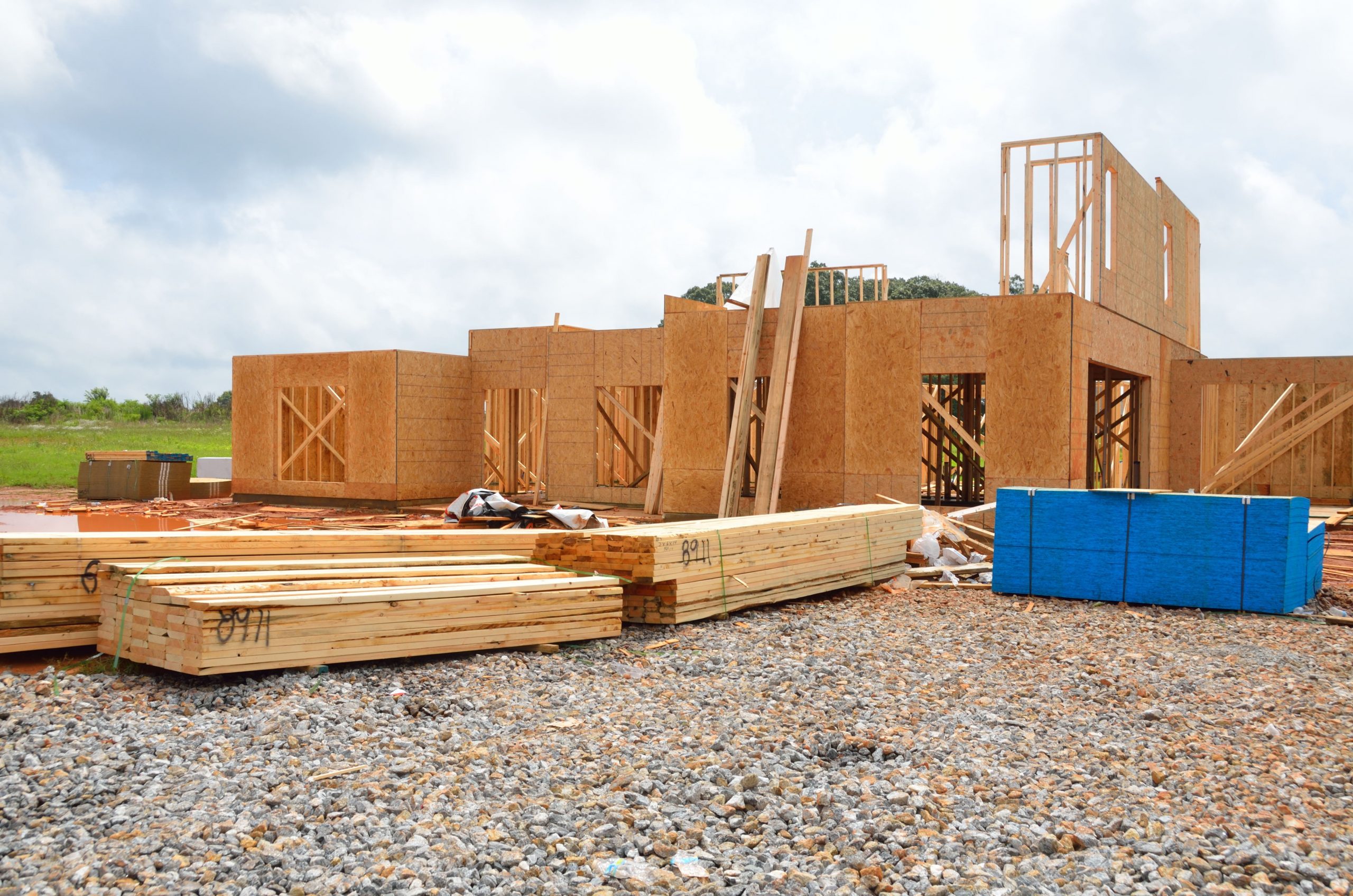- Milton Keynes 01908 660966
- Northampton 01604 828282
 A New Homes Warranty is designed to protect homeowners of newly built, converted or refurbished properties from structural defect in the first 10 years.
A New Homes Warranty is designed to protect homeowners of newly built, converted or refurbished properties from structural defect in the first 10 years.
If the property has been built or converted within the past ten years, or is to be occupied for the first time, you must ensure that it was built or converted under a scheme acceptable to your mortgage lender.
What is a building warranty?
A building warranty is an insurance policy for newly built homes. The warranty is taken out by the builder or developer but is in place to protect the buyer.
Who provides new build home warranties?
The three main providers of new home warranties – the National House-Building Council (NHBC), Local Authority Building Control Warranty (LABC) and Premier Guarantee although there are many more. These operate under the Consumer Code for Home Builders.
There are also warranty providers operating under different codes of conduct
How long do warranties last?
Building warranties usually last for 10 years.
What do they cover?
On exchange contracts your warranty will cover your deposit against the Developer going insolvent. This means if the builder goes bust and doesn’t start or complete the property your warranty provider will reimburse your deposit. Not all warranty providers include this cover, so do check the position with your Lawyer for your particular Property.
Once the property is built, the warranty is split into two periods: –
Year 1 and 2 – defects insurance period.
Year 3 to 10 – the structural insurance period.
During the first two years if there are issues with the work the builder has done, such as the windows letting in rain because they’re not sealed properly or the heating not working because the pipes are faulty, the builder is obliged to come and fix them.
During the structural insurance period, the builder is only responsible for major problems with the structure of the house. This includes foundations, the external render, roofs, ceilings, chimneys and load-bearing parts of the floors. Smaller ‘defects’ become your own responsibility, including non-structural defects such as problems with your gutters or fixtures and fittings.
What is not covered?
Natural wear and tear isn’t covered by a new home warranty, neither is weather damage or any problems resulting from you not maintaining the property adequately.
Damp and condensation may be covered but only if they have occurred as a result of the builder’s failure to comply with the warranty provider’s standards (in other words, if it’s the builder’s fault!)
How do I notify a defect?
Contact the builder as soon as possible. Keep a record of all communication including dates and times of telephone calls. This will be needed if there are problems with getting your builder to address the issue.
Some warranty policies have an excess, which means you will pay an initial excess for each claim made under the warranty
What happens if the builder won’t honour the warranty?
If the Builder conforms to the Consumer Code for Homebuilders, the code features a dispute resolution scheme which you can use during the first two years if the builder won’t carry out the necessary remedial work.
Does the warranty remain valid if I move house?
The warranty is attached to the Property and is transferred to your buyer. Any work you have done on the property yourself (extension and alterations such as loft conversions or conservatories) will not be covered by the warranty.
Can warranties affect my mortgage application?
Yes. It is usually a condition of most mortgage applications that a warranty must be in place if you’re buying a newly built home.
Should I take out home insurance too?
Yes. Aside from the fact your mortgage lender will require you to have buildings insurance in place, it is sensible to protect your investment. The new home warranty only covers problems that are the builder’s fault. If your home floods because of bad weather or is damaged in a fire you won’t be covered.
For advice and assistance in purchasing a new home, please do not hesitate to contact our New Homes team on 01604 828205 for Marie Bevan / 01604 828219 for Kris Raca or email newhomes@franklins-sols.co.uk.
 Know the difference between Searches, a Mortgage Valuation and a Homebuyers survey –
Know the difference between Searches, a Mortgage Valuation and a Homebuyers survey –
Early on in the conveyancing process, your conveyancer will ask you to make an initial payment on account to cover the cost of searches against the property you intend to purchase. These will cover environmental matters, water and drainage and a search of the local authority records for entries relevant to the property. As part of your mortgage application process your lender will also conduct a valuation of the property, a report on which you should receive with your mortgage offer. To produce this report the valuer will however have only attended the property very briefly, or may perhaps have only conducted a ‘drive-by’ valuation. It is therefore advisable to commission a full survey of the property separate from the above reports, for a detailed assessment of the property’s condition. Your estate agent should be able to assist with booking a survey for the property.
- The process will take time –
Chances are that after having your offer accepted for a property, you will be keen to get the key for the house as soon as possible. It is therefore likely to be frustrating to learn the conveyancing process may take three months to complete – or longer in some cases.
- Arrange Buildings Insurance –
It is vital to have buildings insurance in place by the point of exchange of contracts, so look early on at the policy that suits you best. This may be offered by your mortgage lender, or alternatively you may wish to look at comparison websites. Remember – you will need to be insuring the property from the date of exchange, not completion!
- Don’t make yourself homeless –
Prior to purchasing your first home, you may well be living in rented accommodation. The temptation will be to hand your notice in early to your landlord, to avoid having to pay your first mortgage payment after completion as well as rent. Be aware however that the date for you to move into your new house can only be set when contracts exchange, and therefore handing in your notice to prior to this date can be very risky, Always make sure you have a contingency plan in case the date for completion of your house purchase slips beyond the date you need to vacate your rental property.
- Organise your source of funds as soon as possible –
Prior to you being able to transfer your deposit and exchange contracts, you will need to supply your conveyancer with documentary evidence as to how you are funding the purchase of the property. This will include the need to disclose any third party contributions, such as gifted deposits. It is advisable to provide this information as early as possible during the process so as to not delay matters closer to the date of exchange.
- Re-inspect prior to exchange of contracts –
The principle of ‘caveat emptor’, or buyer beware, applies to property transactions. The obligation is on the buyer to ascertain as much information about the property prior to exchange of contracts, and the buyer then takes the property in its current condition at the point of exchange. It is therefore vital that you are fully satisfied regarding the property’s condition prior to exchange. Chances are by the point of exchange your first viewing of the property will have been a number of weeks ago, and therefore it is advisable to re-view before exchange to identify any potential issues.
- Know the difference between exchange and completion – and the significance of both –
Exchange of contracts creates a legal obligation between you and the seller for you to purchase the property on an agreed date. You will need to have signed your contract and lodged your deposit with your conveyancer before exchange of contracts can take place. In only rare circumstances will this also be the date that you receive the key for the house, which will be the date for completion. Completion typically follows around a week after exchange of contracts, however it can be longer depending on the intentions of the parties in the chain.
- Stamp duty –
Do you need to pay? If you are purchasing the property for less than £300,000.00 and neither you nor anybody purchasing the property with you have owned a property previously, you will be eligible for a stamp duty exemption. Special rates also apply if you are purchasing a property exceeding a price of £300,00.00.
- Protecting your deposit –
If you are purchasing the property jointly but are making unequal financial contributions towards the purchase price, you may wish to consider protection your contribution by way of a declaration of Trust. Our expert private client department can advise you on the appropriate steps to take to match your requirements.
- Ask questions! –
The process can be confusing and at times overwhelming. Our conveyancing team will be on hand to answer any questions you may have.
For more information about our Conveyancing Solicitors visit our Conveyancing page.
If you would like any further advice in relation to purchasing your first home, contact our expert Residential Property team on 01908 660966 / 01604 828282.












